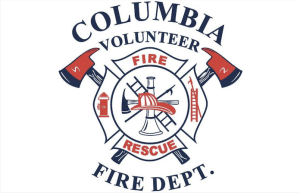Drug-free coalition talks trends

At November’s Monroe County Coalition for Drug-Free Communities meeting, the group discussed recent trends in alcohol and substance use, along with the importance of avoiding stigmatizing language when discussing such topics.
Stacie Zellin, a community coordinator at PreventEd (formerly known as National Council on Alcoholism and Drug Abuse), provided what she called an “appetizer sampler” of latest drug trends.
COVID restrictrions have led to increased alcohol sales, and therefore consumption.
“Following the pandemic, alcohol sales and use have skyrocketed,” Zellin said. “We all know that everybody is drinking more because of the pandemic. We’re seeing an enormous issue with mental health following the pandemic, and a lot of people are using alcohol to cope with that.”
Simply changing the conversation surrounding alcohol can help, Zellin said.
She reiterated that because the majority of individuals who meet the “excessive” drinking category – anything over the moderate drinking definition of one drink per day for women and up to two drinks per day for men – do not meet the criteria for an alcohol use disorder, reminding people of the health risks is important.
These include increased risk of certain types of cancer, mental health concerns, potential liver problems and more.
Zellin said that over time, the THC potency in cannabis products has increased. In the 1960s and 1970s, the average THC potency was 1-2 percent. Today, one can easily find products of 30-60 percent, with certain ones such as butane hash oil containing upwards of 80 percent, Zellin said.
The commercialization of THC products, which in turn drove the want for more “euphoria,” contributed to this climb, she said.
“This is a very far cry from the cannabis from back in the 60s and 70s when we did develop these formative ideas about cannabis, that it’s all-natural and it’s harmless,” she said. “So what has happened is the products have changed but our perception and our understanding as a society of the risks and the harms have not kept up.”
She noted there is a connection between THC exposure and depression and anxiety disorders and that PreventEd is “keeping an eye on” studies regarding psychosis.
Another hot topic regarding cannabis is its medical use. There are only two medications that are derived from the cannabis plant that are currently FDA approved, which means these products undergo high testing standards and have guaranteed consistency as far as their make up.
However, this is not the case for the vast majority of medical cannabis products.
“The medical cannabis products that are in medical cannabis dispensaries are not FDA approved,” Zellin said. “What happens is physicians can write recommendations for cannabis products and that’s how somebody can get access to their medical cannabis card. They take it to a dispensary and dispensaries are operated like private businesses where they can have whatever products that they want there and those products can vary.”
Overdoses from heroin and opioids are continuing to climb, Zellin said, but so is acceptance of a medication-first treatment model.
“We try to educate and explain why people would continue to use heroin and opioids despite the harmful consequences that they see in their lives,” she said. “We do that by explaining what happens when somebody builds a tolerance to the substance. As they use, they get that euphoria and eventually that euphoria climbs downward and so does their normal. We see people who are using maybe not to get high anymore, but because they just want to feel normal or because they desperately want to avoid falling down into withdrawal.”
Yet, she said “fentanyl is still what’s driving overdose deaths.”
Increasingly often, these overdoses are cases where people are unknowingly or unintentionally exposed to fentanyl, as it is often laced with other substances.
“If you talk to law enforcement they will tell you that you pretty much cannot find just heroin anymore, it’s all laced with fentanyl at this point,” Zellin said.
As Monroe County Sheriff Neal Rohlfing and the coalition president Josh Boyer previously told the Republic-Times, the manufacture of methamphetamine shifted from local to international in the last decade.
Zellin said PreventEd has noticed this as well.
“It’s different than the meth issue we had decades ago where people were buying up all the pseudoephed from pharmacies and manufacturing meth in their homes. This is all coming in from other countries or its precursors are coming in from other companies. It’s extremely cheap and it’s very pure,” she said.
The language used when talking about alcohol and substance concerns is extremely important, Zellin said.
“We know that words matter. If people feel stigmatized or that there’s prejudice against them when it comes to substance use disorder or any challenge when it comes to substances, they are going to be less likely to seek treatment,” she told the coalition.
In fact, this was one of the primary reasons why PreventEd changed its name recently. While the organization does not provide treatment, it helps connect those struggling with such resources.
“‘Alcoholism’ and especially to say ‘drug abuse’ is terminology that we have been moving away from,” Zellin explained. “So, it was starting to get really uncomfortable to stand in front of a group of people and say, ‘We’re not really using (these) term(s) anymore, but (they’re) in our name.’”
She stressed one should always use person-first language, which her presentation said “puts the person before the disability and describes what a person has, not who a person is.”
For example, instead of saying “autistic person,” say “a person who has autism.”
She said being cognizant of words such as “abuse” when describing substance use concerns helps destigmatize it, in turn helping people feel more comfortable in seeking help.
“We don’t use ‘abuse’ in any other medical context where we’re giving somebody treatment,” Zellin said. “If somebody has diabetes and they’re eating more sugar than they should, we don’t say that they are ‘abusing’ sugar. When we use ‘abuse,’ it’s usually when we’re saying things like ‘child abuse’ or ‘spousal abuse’ – it has a very negative association there.”
Words like “dirty” also have a negative connotation and one’s point can easily be expressed by saying “tested positive for a substance,” Zellin said, adding the same goes for saying “abstinent” for “former addict or alcoholic.”






